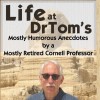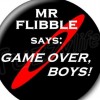Choice of keywords for Hubs
I know that the choice of keywords is important. But can you have too many keywords? What is wrong with using every word you can think of?
You can definitely have too many keywords. It is equivalent to keyword stuffing and it's considered spam. Instead of helping increase your article's search engine ranking -- it will lower it!
Hubpages has a very useful tool for avoiding keyword stuffing. If you go over 40 tags (the last time I counted), your hub will automatically be marked that it has a high number of tags. So, you need to delete some of your tags ASAP or you will get less search engine traffic. Delete the least relevant tags and those that are very similar to other tags.
The best practice for higher google ranking and more traffic is to try not to go over 20-30 tags.
I hope that helps...
Allieallie: 20-30 tags is way more than I thought. I had 8-10 and I was worried that may be too many.
8-10 tags should be okay. Some people have mentioned 15 tags as their maximum. So, 20-30 tag maximum is also just a guideline. Don't worry too much about the exact number of tags. If you go over the maximum number of tags that is considered search engine optimized, hubpages will alert you. If the high-number-of-tags alert shows up, just start deleting some of your less desired tags ASAP. If you don't do it, you might notice that traffic for that article is not increasing.
I suppose Misha is right. Advice and tips from everyone could be like the blind leading the blind. So, if you try any SEO strategies always look at your results using Google Analytics to see if your efforts are going in the right direction. My Google traffic for online articles ranges from 40% to 75%. Most of the time it falls on the lower range. A special problem for hubpages is the high traffic from the great community. I'm also starting to see more traffic from twitter and facebook. Too bad they do not convert into adsense earnings.
I consider Mark Knowles and Misha as the hubpages' experts for adsense and other monetization issues. So, I follow both of them.
In terms of keyword stuffing, I used to not consider the tags as a potential problem until I read an SEO guide that changed my thinking. In the late 1990's, keyword stuffing was a term often used for over-using keywords over and over again. More recently, keyword stuffing also refers to a higher percentage of keywords and keyword phrases used in an article or webpage in order to increase keyword density. Instead of keyword density, it's better to focus on a reasonable theme density including use of latent semantic indexing (LSI).
For safe search engine optimization strategies, check out Google's own guide. To find it, google the phrase "google guide" and it's the 3rd result on the list. The title of the free pdf is "Google's Search Engine Optimization Starter Guide."
Good luck!
AllieThank you for mentioning me as an expert in the area, yet I think people like Peter Hoggan or Eric Graudins fit this role better. And sorry, you do not make any sense again. Keyword density means exactly how many keyword repetitions you have, just divided by the total number of words on the page.

You're welcome, Misha! We're actually in agreement here. Keyword repetitions divided by the total number of words on the page gives you the percentage of keywords and keyword phrases.
Thanks for mentioning Peter Hoggan and Eric Graudins as hubbers you consider as experts. Although I signed up about 8 months ago, I stupidly didn't start using hubpages until 2 months ago. So, I'm still a new hubber and I pay close attention to expert hubbers that other people mention.
Mark Knowles had a lot of good things to say about you. I thought I bookmarked the hub, but I'm sorry I can't find it. He did mention that 150 of his earlier hubs were not performing as well as your 15 hubs. This was valuable lesson for me as a new hubber to take my time and do a good keyword research as well as search engine optimization of my hubs. Not surprisingly, quality hubs can perform much better that high-quantity of lousy hubs.
Thanks for your input, Misha!
AllieAw shucks. thanks Misha.
But Peter knows a lot more about SEO than I do.
If anyone is struggling with the concept of what keywords are, please feel free to download this basic guide that I wrote for my clients.
http://TheInternetBloke.com/Keywords.pdf
No need to sign your life away. No hoops to jump through. Just download and read it.
It's not specifically about hubpages but the general principles apply. If you are wanting to be seen on google, then it is very relevant.
You'll find what keywords are, and how to find effective ones.
You'll also discover why being at the top of Google may mean NOTHING!
(And as a bonus, it's written for people who are Technically Terrified!)
cheers,
Eric G.
Not that you have any idea of what you are talking about

Blind leading blinds LOLMisha, are you saying you can not have too many keywords?
You have to define what you mean by keywords first. If you mean tags - yes, you can have too many. Yet it is safe to experiment. You just add those you think are relevant to your hub until the systems tells you it is too many. Then just remove a couple to make it happy, and you are done.

Now, if you are talking about keywords you potentially can rank for on search engines - this is every word and every combination of words on your hub, there is no way you can have too many of them.
And coming back to what this lady said. Keyword stuffing has nothing to do with tags, nor it has to do with a number of keywords you are trying to rank your hub for. Keywords stuffing is using the same keyword(s) over and over again to the point of the text becoming unreadable and beyond it...
Keyword stuffing is bad because keyword stuffing causes bad rankings because search engines don't like keyword stuffing and therefore writers should not use keyword stuffing in any way or keyword stuffing will hurt their ranking because of keyword stuffing. However keyword stuffing used to work at some point and keyword stuffing is still used by many misled souls that believe keyword stuffing still works while keyword stuffing does not work for quite some time already because search engines figured keyword stuffing to be a bad keyword stuffing.
Hope this clears the dust a bit.
Can I have some turkey with my stuffing?

Hey Misha, That was really a fantastic illustration.

You explained it well. If I wouldn't have seen your explanation, then I would have yet another one. And I already know you through Mark Knowles.
You are getting as ratty as the rest of us Misha. Forums do something to people.
Bro, honestly - think how many people have thought about that? The best thing to do is write naturally, the keywords will find their own place and will be in the right density. As long as you keep it organic you will be earning loads of cash. Keywords that are hand picked because of value will earn you hardly anything - unless you do it right. Practice on keeping your work organic and experiment, record your results and keep doing what works best for you.
The above posts came from Paul Deeds of HubPages Staff. He left this post in another thread, yesterday.

10 is okay I think. Tags also help on how fast your pages get picked (indexed) by search engines.

Good post! I have always focused on trying to find the most appropriate tags, and thinking about how I would search for my article, but I never thought much about the number. I haven't usually gone above 10, for fear of putting in too many. Nice to know I can expand that a little if I think the hub could use it.
- EmpressFelicityposted 15 years ago
0
Hi LifeatDrTom's, what you're probably not aware of is the distinction between Hub Pages' own tags (which appear on the right hand side of your hubs and enable other HP members to find them) and the keywords that external people search on when they use Google (or another search engine).
If you want lots of traffic - and hence more earning potential - you need to attract the external people. Hence you need to concentrate on Google keywords rather than HP's own tags.
The most important thing when writing a hub is to choose the wording of your title so that at least one good keyword appears in it. You pick suitable keywords by using Google's Adwords keyword tool:
https://adwords.google.com/select/KeywordToolExternal
When you've entered a keyword (and typed in the bit of code they give you underneath), it then takes you to a screen where you can find out (a) how many searches are done on a keyword each month, (b) how much competition there is (you're aiming for low competition 'cos that way, your hub is more likely to be ranked higher in the search engines), and (c) how much the keyword is worth financially (the "cost per click"). (You need to choose "Show Estimated Avg CPC" from the Show/Hide Columns menu first in order to do this though. Oh, and it's also a good idea to choose "Exact" rather than "Broad" as your match type.)
Hope that helps.You're welcome. I should also point out that "keywords" doesn't just mean individual words, but also phrases as well. (In fact, you'll probably have more luck finding good key phrases than words... e.g. "buying tea online" as opposed to just "tea").
Thinking about it, I implied that HP's own tags don't have any bearing on a hub's visibility in search engine terms... but I'm not sure whether that's actually true. Perhaps they do, but it's certainly a lot less important than having good keywords/phrases in your hub title (not to mention the hub URL and first paragraph).
There's me sounding like an expert when I've earned just over seven quid on Adsense to date
Just wanted to clarify this part *bolded*
The stat in the Google keyword tool is for advertiser competition which has no relevance on your competition in the search engines for a keyword phrase. The little graph there shows how many advertisers are bidding on that phrase for their ads to show up. You've given good advice, though.
I use "phrase" match since it seems to give a better picture of possible search traffic. Reason being; if your key phrase is "green tea" exact will only show you the number for exact type-ins of that phrase whereas phrase match will show both exact results in addition to any other search term that includes the phrase "green tea", such as "Japanese green tea", "buy green tea", "how to make green tea", etc. Your hub on green tea could potentially be found with any of those phrases and then some.Oooh, I didn't realise that. Although there must I assume be a certain degree of correlation between advertiser competition and competition in the search engines? A keyword that lots of people are searching for will surely be of more value to advertisers.
Useful tip - will give that a go.That is true, although choosing keywords for advertising has subtle differences from choosing them to get found in search engines, but I am a complete noob on pay per click advertising.
To check competition enter the key phrase into Google with quotes. [ "green tea ] Google will treat quotes in front the same as on both sides of the phrase. This can be tedious for multiple phrases, though, so I use a paid keyword tool that will compare competition of 200 keywords at a time in about a minute.
Yery interesting topic, and one that I probably need to work on.
my traffic sucks. When I look at my analytics my most popular keyword is my username. The rest don't bring in much traffic.
But, it is very confusing, one part of analytics will say you had 7 page views today, but it you, switch to a different category using the same keyword it will say you had 26. So, how do you know which stat to believe?After trying to digest all of this, I am inclined to just write good articles with clever titles, and not worry about any of this. But thanks for all your efforts.
I always follow the advise of Lizzie Sowerbutt (read long ago when I first joined hubpages) and just remember to use the keyword phrase in the first fifty words of the article and in the summary text. It has always been enough to get traffic for me.
The hubs I've written with clever titles (which I consider to be my best hubs) get read hardly at all.
After an initial burst of reading by my followers, they flatline themselves in statsland, creating a little spike sometimes as some lucky forager comes across them.
Other hubs where I've written about topics and written titles without doing any keyword research have similar results.
On the other hand, the hubs where I have used some keyword strategies keep getting more and more views from search engines.
Of course you may be lucky with clever titles. Even a blind chook finds a grain of corn sometimes
That's why some people take hundreds of hubs to earn any income.
And why Misha has great success with comparitively few hubs.
And keyword research is not enough. You need to consider whether people have purchases in mind when searching your hub.
You could get gazillions of views for your hub. But no clicks if it is not commercially oriented.
It depends what your goals are for your hubs.
If they are to just write with no goal of people reading or purchasing anything - don't bother with keyword research.
If you want to have a lot of readers - do some keyword research.
If you want to get an income from adsense clicks or amazon sales - write about topics in which there are people keen and eager to buy stuff.
that's about as basic as I can put it.
cheers,
Eric G.Very well said.
and after you digest and implement that information realize that should any part of your motivations be monetary that one can use one set of keywords to attract traffic ( URL, Title , off page anchor links ) and a different but related term to maximize click value (in-text and H1)
If you can find a well searched, low competition term to rank for that has a low cpc, you can still use that term but use variations on page that trigger much higher paying ads.
Attract traffic for "Hippo Food" (.05 ecpc) but trigger ads for "Buy Hippo Food " (2.25 ecpc)
There are some really knowledgeable blokes here. Eric, I read your piece on keywords, which really helps. First order of business is to learn how to use Google Adwords thingie. Then, breakfast. Thanks all.
@retellect
Sorry, I don't agree that "you will be earning loads of cash" just by keeping your hubs "organic" - whatever that means.
If you are going to optimize your hubs to get maximum benefits from keyword searches, then you need to first find out what keywords people are being typed into search engines, and use them in your hubs.
This can certainly be done without compromising your written work.
regards,
Eric G.
Related Discussions
- 73
Hubs missing from Google - Keyword results = 0
by WorkAtHomeMums 13 years ago
I have spent time reading all of the other forum posts regarding a decrease in traffic so I know I am not alone but even though I have read and read them I still do not understand what is going on.Quite a few of my hubs were on page 1 of google for my keywords. This then brought with it the...
- 2
What is keyword stuffing in a hub?
by Vishaaa 14 years ago
What is keyword stuffing in a hub?I'm just confused about this keyword stuffing thing actually. I just write a normal hub and I just hit the "publish" button If I feel it is perfect. But I see so many hubbers instruct others to use "keywords" to build the traffic. How can I do...
- 14
What the heck is Keyword Stuffing????
by Julie Grimes 15 years ago
What is it?How does it happen?How do you do it?
- 14
Keywords and Tags
by Liz Elias 14 years ago
Greetings-- I have been reading quite a bit on this topic lately, trying to learn more. I have learned quite a bit about what they are, and where/how many times they should be placed. My new question is, must they appear in the exact same sequence as in the title and the list of...
- 163
I need guru help big time!
by Sondra Rochelle 11 years ago
A few days ago I noticed that my views had dropped about 50%. Now that number has gone up to 90%. When I searched the first sentence of my top 5 niche articles, nothing showed up. When I searched by exact title, nothing showed up. It appears my articles have disappeared...
- 45
Catch keyword stuffed summaries
by Raye 10 years ago
It's just come up in the wake of one Hub author's entire account being moderated that the Hub summaries don't actually ever get seen by people hopping Hubs or reading them as they appear when published like when some asks for help in the forums. This person's account was moderated for...



















